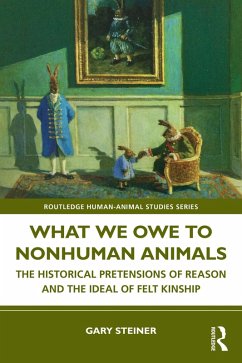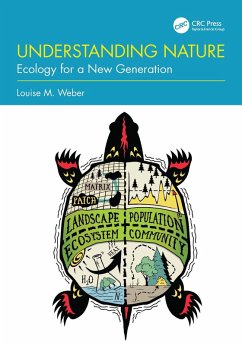
AI for Behavioural Science (eBook, ePUB)

PAYBACK Punkte
9 °P sammeln!
This book is a concise introduction to emerging concepts and ideas found at the intersection of contemporary behavioural science and artificial intelligence. The book explores how these disciplines interact, change, and adapt to one another and what the implications of such an interaction are for practice and society.AI for Behavioural Science book begins by exploring the field of machine behaviour, which advocates using behavioural science to investigate artificial intelligence. This perspective is built upon to develop a framework of terminology that treats humans and machines as comparable ...
This book is a concise introduction to emerging concepts and ideas found at the intersection of contemporary behavioural science and artificial intelligence. The book explores how these disciplines interact, change, and adapt to one another and what the implications of such an interaction are for practice and society.
AI for Behavioural Science book begins by exploring the field of machine behaviour, which advocates using behavioural science to investigate artificial intelligence. This perspective is built upon to develop a framework of terminology that treats humans and machines as comparable entities possessing their own motive power. From here, the notion of artificial intelligence systems becoming choice architects is explored through a series of reconceptualisations. The architecting of choices is reconceptualised as a process of selection from a set of choice architectural designs, while human behaviour is reconceptualised in terms of probabilistic outcomes. The material difference between the so-called "manual nudging" and "automatic nudging" (or hypernudging) is then explored. The book concludes with a discussion of who is responsible for autonomous choice architects.
AI for Behavioural Science book begins by exploring the field of machine behaviour, which advocates using behavioural science to investigate artificial intelligence. This perspective is built upon to develop a framework of terminology that treats humans and machines as comparable entities possessing their own motive power. From here, the notion of artificial intelligence systems becoming choice architects is explored through a series of reconceptualisations. The architecting of choices is reconceptualised as a process of selection from a set of choice architectural designs, while human behaviour is reconceptualised in terms of probabilistic outcomes. The material difference between the so-called "manual nudging" and "automatic nudging" (or hypernudging) is then explored. The book concludes with a discussion of who is responsible for autonomous choice architects.
Dieser Download kann aus rechtlichen Gründen nur mit Rechnungsadresse in A, B, BG, CY, CZ, D, DK, EW, E, FIN, F, GR, HR, H, IRL, I, LT, L, LR, M, NL, PL, P, R, S, SLO, SK ausgeliefert werden.













